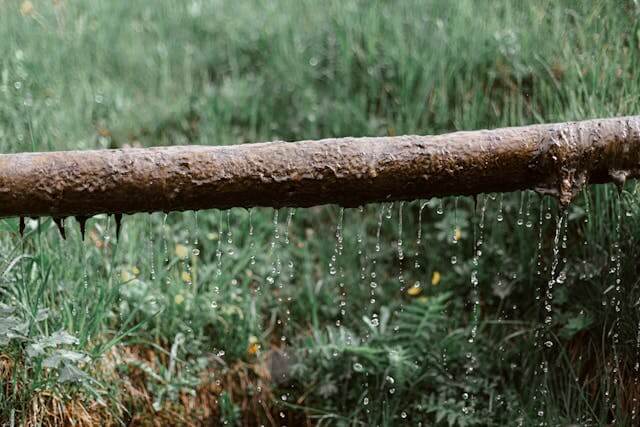Illicit Discharge Detection & Elimination

Illicit Discharge Detection and Elimination, IDDE, is a common method Durham County Stormwater and Erosion Control uses to address issues regarding substances entering our drainage and waterways. County Stormwater is responsible for enforcing the illicit discharge section of the Durham County Stormwater Ordinance, and investigates all complaints received for concerns outside of City limits.
If you believe you have observed an illicit discharge, please let us know by calling our Stormwater Hotline at 919-560-7008, or emailing stormwater@dconc.gov.
Below is a table with examples of common illicit discharges observed in Durham County.
IDDE
How to report an illicit discharge
If you see suspicious substances entering storm drains, ditches, or waterways, please report it:
Stormwater Hotline: (919) 560-7008
stormwater@dconc.gov
Your report helps protect local water quality and keeps our streams, rivers, and lakes cleaner for everyone.
List of Illicit Discharges and Allowable Discharges
|
Illicit Discharges
Allowable Discharges |
|
Durham County Stormwater Ordinance Language
Durham County Ordinance Sec. 14-161 States:
- Types of Illegal Discharges. It is unlawful for any person to empty or deposit in any stormwater collection system, directly or indirectly, any substance, liquid or solid, which by reason of its nature:
- Is, or may become, a public health hazard endangering human or animal health;
- Is a nuisance, including substances which are unsightly or malodorous, or may become so;
- Interferes, or may interfere, with the free and rapid flow of surface water;
- Is flammable or explosive;
- Is toxic to plant or animal life;
- Is corrosive, or has properties which may damage or render unsightly the stormwater collection system; or
- Affects adversely the State of North Carolina classification of the stream into which the stormwater collection system discharges.
- Prohibition on Stormwater Collection System Obstructions. It is unlawful for any person to place any obstruction in any stormwater collection system to obstruct or impede the free flow of surface water, unless same has been authorized by the County.
- Removal of Illegal Discharges. The developer is responsible for taking immediate action to report and remove an illegal discharge occurring on its property, regardless of the source of same. Upon receiving any report of an illegal discharge, the County shall issue notice to the developer. This notice shall specify the problem and action necessary to remedy it, as well as the time frame for taking such corrective action and the potential for additional action under Secs. 14-161 and 14-162 of this article.
- Penalties for Illegal Discharges. Any developer, or other person, who makes, directly, or indirectly, an illegal discharge into a stormwater collection system shall be subject to civil penalties as provided in Sec. 14-160 of this article.


